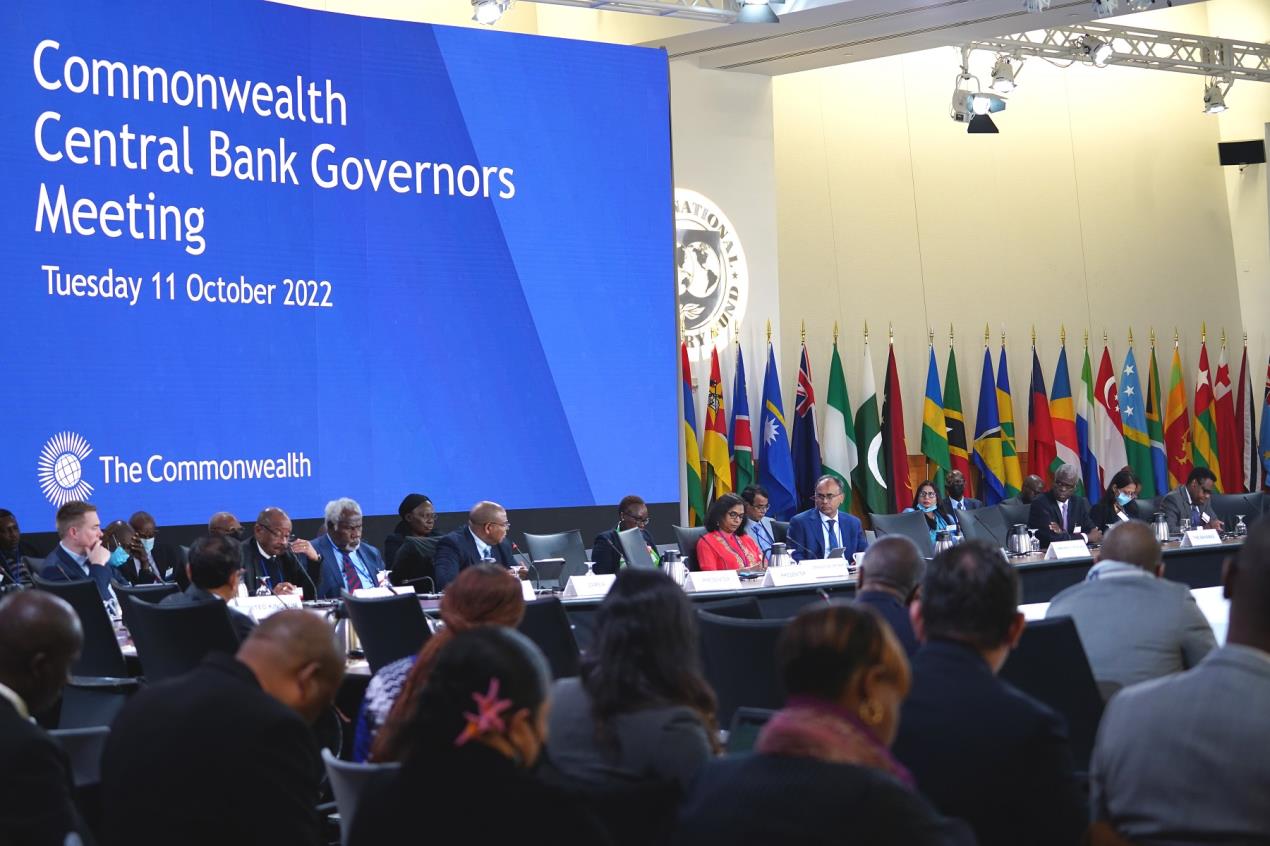At their annual meeting held today in Washington DC, Commonwealth Central Bank Governors came together to discuss strategies to best work together to tackle inflation at a time when the global economy is facing excessive inflationary pressures driven by geopolitical tensions, coupled with the disruption in supply chain. Top of the agenda was the discussion around high global inflation and the cost-of-living crisis which is affecting the lives of millions across the Commonwealth and beyond. 
Chaired by Mr Abdur Rouf Talukder, Governor of Bangladesh Bank, and on the theme of ‘Tackling Inflationary Pressures on Multiple Fronts’, this was the first in-person meeting of Commonwealth Central Bank Governors since 2019. In his opening remarks, Mr Talukder said: “Central banks, particularly, the Commonwealth central banks have a crucial role in tackling inflation. Clear communication together with close collaboration between monetary and fiscal policy authorities remains vital to tackle inflation from both monetary and fiscal fronts. As inflation soars to new heights, Central banks across the globe have been quick to act by raising interest rates from January to date, but it is important to highlight the associated costs that can arise from tightening monetary policy, which include, but are not limited to unemployment, slow economic growth or even recession. Therefore, we need to tread cautiously to minimize the costs of monetary tightening as best we can.” The meeting covered topics such as monetary policy tools to tackle inflation, the impact of rising interest rates on capital flows, and a presentation from the Reserve Bank of India on the Unified Payment Interface (UPI) - a digital innovation developed in India which enables real-time instant payments through smartphones from one bank to another. The Governors shared their respective experiences and acknowledged an urgent need to manage inflation expectations. They opined that inflation has been largely driven by the supply-side as opposed to demand side, thus posing a challenge for central banks. The Governors acknowledged that in Commonwealth countries, predominantly, inflation has been driven by rising import prices of fuel and food prices. And while inflation has reached record high levels in most Commonwealth countries, for some countries, exchange rate appreciation has helped reduce the inflationary pressures caused by global supply shocks and geopolitical tensions, leaving room to keep monetary policy relaxed. The Central Bankers mentioned that they will continue implementing monetary tightening to try and contain demand while also working to tackle supply side challenges. The governors further reiterated that it is imperative to ensure that monetary policy is accompanied by complementary fiscal policy that does not exacerbate demand side pressures. The Governors also considered the impact of rising interest rates and noted that rising interest rates could potentially result in capital outflows and consequent currency depreciation for countries with weak macroeconomic fundamentals. The meeting also featured a briefing from the Commonwealth Secretariat’s Economic Policy and Small States (EPSS) team on the recommendations of their recent report ‘Commonwealth Countries: Driving FinTech Innovation', and the outcomes of yesterday’s event on ‘Using FinTech for Finclusion: Who to target and what mechanisms are needed’. -ENDS- Notes to Editors - The Commonwealth is a voluntary association of 56 independent and equal sovereign states. Our combined population is 2.5 billion, of which more than 60 per cent is aged 29 or under.
- The Commonwealth spans the globe and includes both advanced economies and developing countries. Thirty-two of our members are small states, many of which are island nations.
- The Commonwealth Secretariat supports member countries to build democratic and inclusive institutions, strengthen governance and promote justice and human rights. Our work helps to grow economies and boost trade, deliver national resilience, empower young people, and address threats such as climate change, debt and inequality.
- Member countries are supported by a network of more than 80 intergovernmental, civil society, cultural and professional organisations.
- The Commonwealth admitted Gabon and Togo as its 55th and 56th members respectively at the Commonwealth Heads of Government meeting in Kigali, Rwanda in June 2022. Prior to this, Rwanda was the last country to join in 2009.
|

